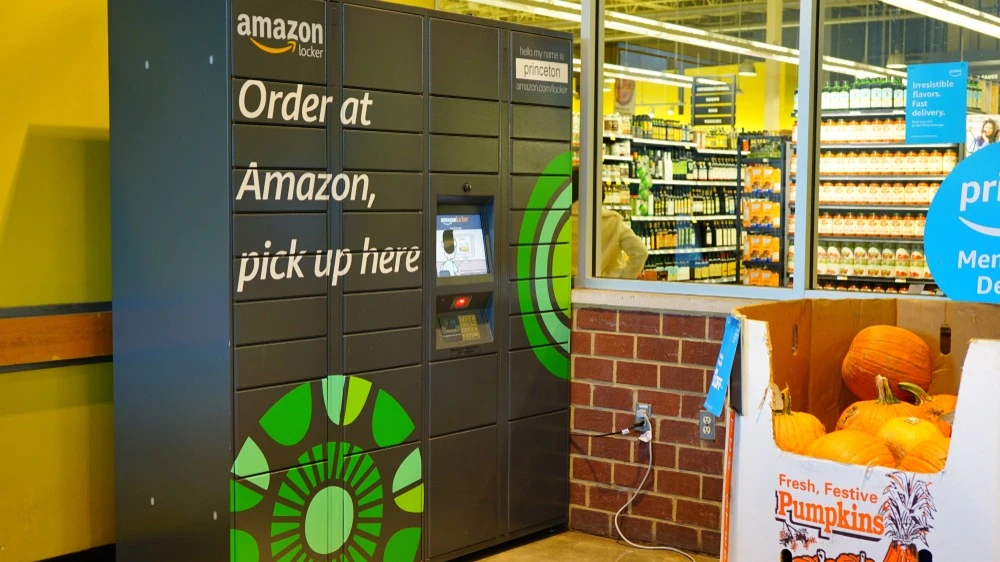'Reasonable reaction': Amazon crashed shares of retail giants and fast delivery services

Shares of major US retailers and food delivery services fell sharply in price after Amazon announced that it would expand its express delivery business. The company decided to add perishable food to its range of products, sharpening competition in the trillion-dollar market. This is part of Amazon's strategy to gain leadership in the online food sales segment, which is so far dominated by Walmart.
Details
Amazon has announced that it has added thousands of perishable products to its same-day delivery service. The service will initially be available in more than a thousand US cities, and the company plans to expand to 2,300 locations by the end of the year. For owners of paid Prime subscription delivery will cost $2.99 (free of charge for orders of $25 or more). For others, it will cost $12.99. The company said the service is designed to complement existing delivery services - from supermarket chains Whole Foods and Amazon Fresh.
After the announcement, Amazon's shares rose in price by 1.4% on August 13th and continued their slight growth at the premarket on the 14th, while the quotes of competitors in the food market collapsed, Barron's writes. Delivery services were hardest hit: shares of Instacart (legal entity - Maplebear) collapsed by 11.5%, and DoorDash - by 3.8%. Quotes of Uber Technologies (owns the delivery service Uber Eats) sagged by 1%. The securities of Kroger, one of the largest supermarket chains in the U.S., fell in price by 4.4%. Negative dynamics affected other leaders of the traditional retail market: shares of Walmart fell by 2.5%, and Costco - by 1.3%.
What market participants say
Investment firm Wedbush called the investor sell-off in Instacart, DoorDash and Uber shares following Amazon's announcement a "reasonable reaction." Analysts called the announcement a "shot fired across the board" that will increase pressure on both digital services and traditional retailers, MarketWatch reports. Until recently, Prime subscribers could get free same-day delivery from Amazon Fresh on orders of $100 or more, while delivery from Whole Foods cost $9.95, Wedbush recalled.
Amazon is lowering the barrier to buying food for both Prime customers and those who don't use paid subscriptions, UBS analyst Stephen Ju agreed with Wedbush. He called Amazon's initiative "directly negative" for Uber and DoorDash because it increases "competitive tension" and "margin pressure."
What could go wrong
Despite an aggressive strategy, Amazon's success in the grocery market is not guaranteed, Barron's warns. While Whole Foods' business is performing strongly, the Amazon Fresh brand has yet to gain a strong foothold with consumers, especially in the physical store segment, which remains the primary channel for grocery shopping.
In 2023, Amazon suspended the opening of new Fresh stores, closed several unprofitable outlets and began to revise the concept. In 2024, the company began opening updated Fresh stores: they became brighter and more spacious, with an expanded range of goods, Prime discounts and its own discount brand. However, according to the company's management, it is "too early" to talk about long-term results, emphasizes Barron's.
What Wall Street is advising
On August 1, Amazon's shares plummeted 7% after the release of its quarterly earnings, as growth in its cloud business lagged behind rivals. Even after rising on August 13, the tech giant's shares are trading 4.1% lower than they were at the end of July. Compared to the start of 2025, they are up 2.4%.
The majority of analysts tracked by FactSet convince clients to buy Amazon stock - 66 out of 70 experts (Buy and Overweight ratings). The remaining four recommend holding the stock, none advise selling.
This article was AI-translated and verified by a human editor
